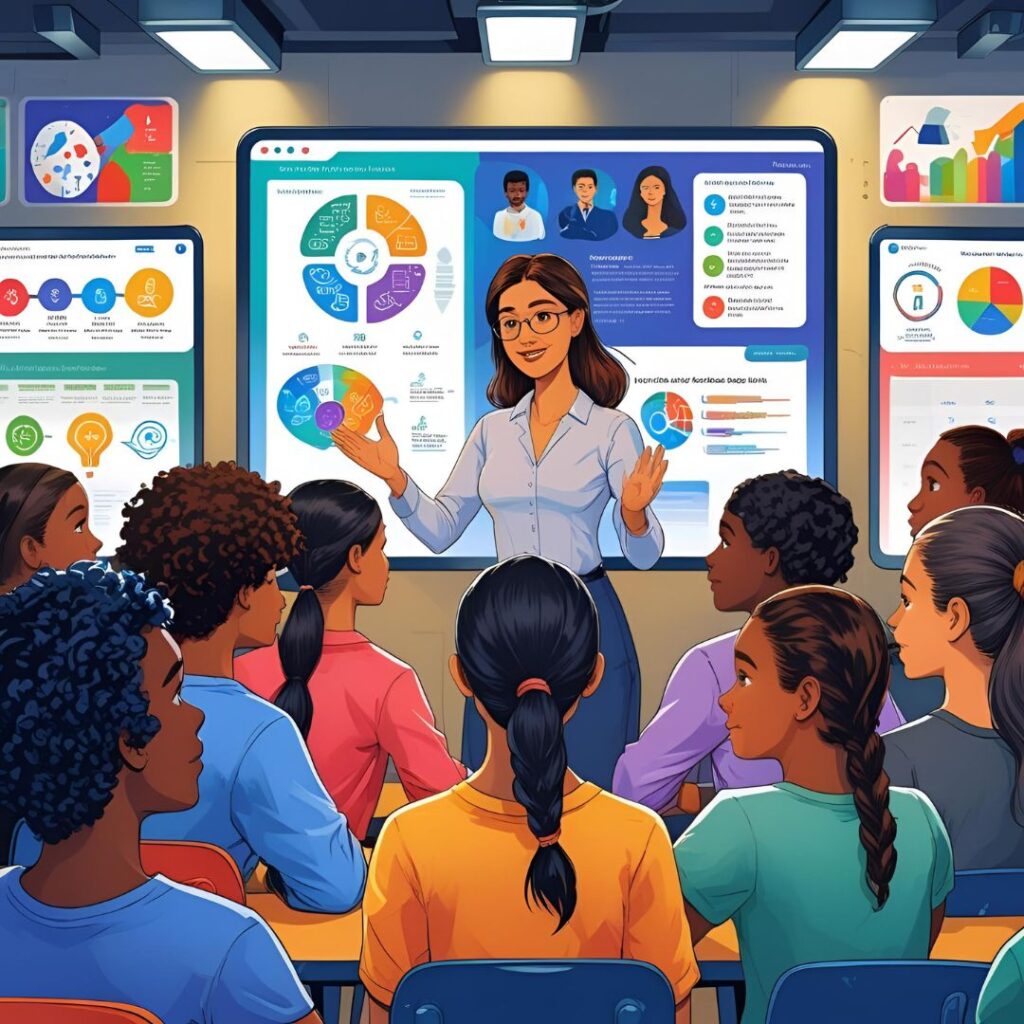5 Reasons Ethical Education Is the Future of Learning
Introduction
The Growing Importance of Ethics in Education
Imagine a world where knowledge isn’t just about facts and figures, but about how we treat each other, how we make decisions, and how we build communities. That’s exactly what ethical education strives to create. We’re living in a time where information is abundant, but wisdom and values are often sidelined. Traditional education has always emphasized academic achievement, but in recent years, there’s been a noticeable shift—parents, educators, and policymakers are now calling for something deeper: ethical development.
Why this shift? Because modern challenges—like climate change, social injustice, technological misuse, and digital misinformation—can’t be solved with academic knowledge alone. They require empathy, critical thinking, and a strong moral compass. That’s where ethical education comes in. It equips students with the tools to think beyond themselves, to act with integrity, and to contribute positively to the world.
Ethical education doesn’t mean teaching religion or imposing beliefs. Instead, it’s about guiding students to develop their own moral reasoning and values. It’s about nurturing character alongside intellect. As we move forward, it’s clear that ethical education is not just a “nice-to-have”—it’s essential.
Why Traditional Learning Is No Longer Enough
Traditional learning models focus heavily on subjects like math, science, and language arts—important, yes, but often isolated from real-life applications and ethical implications. We teach students how to solve equations and write essays, but rarely do we teach them how to solve ethical dilemmas or write with integrity.
In a rapidly changing world, academic excellence without moral grounding can be dangerous. Think about powerful tech leaders misusing data, politicians spreading falsehoods, or corporations exploiting the environment. Most of them probably had excellent academic records. But what they lacked was ethical education.
This is why schools and universities are now exploring how to embed ethics into every aspect of learning—from lesson plans to extracurriculars. The goal is to raise not just intelligent students, but responsible citizens.
1. Fostering Social Responsibility
Creating Empathetic Global Citizens
One of the core purposes of ethical education is to foster a sense of social responsibility in students. What does that mean? It means teaching students to care—not just about themselves or their immediate communities, but about the world at large.
When students learn about global issues like poverty, inequality, environmental destruction, and human rights violations, they begin to see how interconnected we all are. But knowledge alone isn’t enough. Ethical education pushes students to reflect, ask questions, and take action. It encourages empathy, service learning, and community engagement.
By integrating social responsibility into the curriculum, schools are helping students become more compassionate and globally-minded. They’re not just memorizing facts—they’re learning how to make a difference. And that mindset sticks with them for life.

Ethical Education and Real-World Impact
Let’s be honest: the classroom can sometimes feel like a bubble. Ethical education breaks that bubble. It connects what students learn in school with what’s happening in the real world. Through case studies, real-life scenarios, and ethical debates, students are encouraged to think critically and morally.
For example, when discussing climate change, ethical education doesn’t stop at the science. It dives into questions like: Who is most affected by environmental damage? What responsibilities do we have as individuals or companies? What actions are ethical or unethical in this context?
These discussions don’t just lead to awareness—they often lead to action. Students might organize clean-up drives, start awareness campaigns, or volunteer for social causes. That’s real-world impact in motion.
Case Studies and Success Stories
Take the example of Finland, a country well-known for its progressive education system. Finnish schools incorporate ethics into everyday teaching—from early childhood through secondary education. The results? Students grow up to be more socially aware, environmentally responsible, and actively engaged in their communities.
Another great example is the “Roots of Empathy” program in Canada. It brings babies into classrooms and teaches children to observe, reflect, and empathize. Studies show it reduces bullying and increases emotional intelligence.
These aren’t just feel-good stories—they’re proof that ethical education works.
2. Bridging the Gap Between Knowledge and Character
Academics vs. Morals – The Great Divide
Let’s face it: for decades, education has been laser-focused on academic performance. Students are ranked by grades, standardized test scores, and GPAs. But where does character fit in? Too often, it doesn’t.
This divide between knowledge and character has created a generation of high achievers who sometimes lack empathy, resilience, and ethical judgment. We’ve prioritized intellect over integrity. But what good is knowledge if it’s used to manipulate, deceive, or harm?
Bridging this gap means integrating character education into the academic framework. Ethical education isn’t about choosing between being smart or being kind. It’s about being both.
Ethical Curriculum as the Missing Piece
Think of ethical education as the glue that holds everything else together. It turns theoretical knowledge into something meaningful and applicable. Instead of teaching science in isolation, why not explore its ethical dimensions—like the responsibilities of genetic engineering or the morality of animal testing?
When ethics becomes part of every subject, students start to think holistically. They don’t just learn what to do; they learn why they should do it. This cultivates not just better students, but better people.
Ethical education also enhances emotional intelligence—skills like empathy, patience, and active listening. These aren’t just “soft skills.” In today’s workforce, they’re essential.
How It Shapes Personality and Behavior
Students who engage in ethical education often exhibit more self-control, empathy, and cooperation. They’re less likely to cheat, bully, or discriminate. Why? Because they’ve been taught to value honesty, fairness, and respect—not just in theory, but in practice.
Over time, these values become ingrained. Ethical behavior becomes second nature. That’s the true power of ethical education—it doesn’t just inform, it transforms.

3. Preparing Students for Ethical Leadership
Why Future Leaders Need a Moral Compass
Leadership isn’t just about vision and charisma—it’s about values. In a world full of complex challenges, tomorrow’s leaders must be equipped not only with strategic thinking but also with ethical reasoning.
Whether it’s in business, politics, tech, or healthcare, leaders are constantly faced with decisions that have real consequences for people’s lives. Without a strong moral compass, even the smartest leaders can make harmful choices.
Ethical education helps students develop that compass early on. It teaches them to weigh options, consider perspectives, and choose actions that benefit not just themselves, but society as a whole.
Ethical Decision-Making in Real Life
From managing conflicts to navigating peer pressure, students face ethical decisions every day. Ethical education equips them with frameworks to make sound, moral choices.
For instance, consider a student leader organizing a school event. They need to manage budgets, ensure inclusivity, and resolve disagreements—all while being fair and respectful. These are leadership skills rooted in ethics.
Real-life decision-making becomes more thoughtful when guided by ethical principles. Students start to lead with compassion, courage, and integrity—traits that set great leaders apart.
Integration of Ethics in Leadership Training
Schools are beginning to merge leadership training with ethical education. Programs that once focused on public speaking and teamwork now include modules on fairness, transparency, and civic responsibility.
Workshops, mentorship programs, and student councils provide the perfect ground for ethical leadership training. By practicing ethical decision-making in safe, structured environments, students build the confidence to carry those values into the world.



